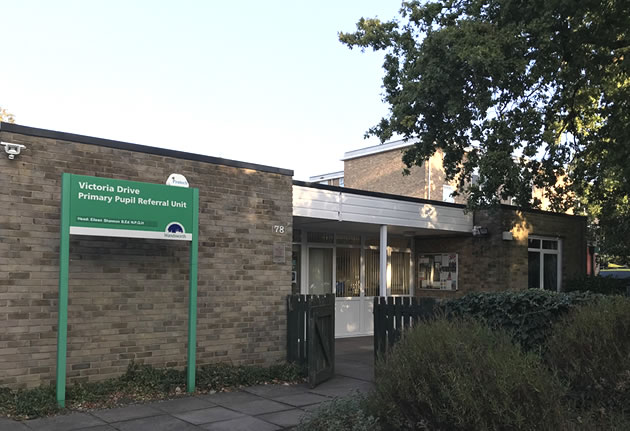Number of Permanent Exclusions Falls Dramatically
Rate for Wandsworth schools now well below national average

Victoria Drive Pupil Referral Unit
Wandsworth used to have one of the highest rates of permanent school exclusions in 2007/2008, but the latest figures show a dramatic decrease.
In 2017/2018, just 19 pupils in the borough were permanently excluded from school, compared to 71 a decade ago.
The percentage of permanent exclusions is now 0.06 per cent – down from 0.25 per cent in 2007. It is also much lower than the statistics for Inner London, and the rest of England which stand at 0.9 per cent and 0.10 per cent respectively.
Research by the Local Government Association also shows that gangs prey on excluded children, linking the rise in exclusions to the spike in violent crime.
Eileen Shannon, Headteacher at Victoria Drive Pupil Referral Unit, says the key is catching children early and taking steps to help them with their mental health.
“It’s about being able to articulate how they’re feeling and their frustrations at all the things that are going on. It’s social, emotional or mental health. The family set-up they’re in, the housing situation they’re in, if they’re homeless or moving around, if a parent is in prison, or domestic violence. It’s the whole shabang,” she said.
A few years ago Victoria Drive had 37 referrals for five-year-old children into the PRU which was “unprecedented,” and resulted in the set-up of the school’s “nurture network” to help vulnerable children.
“We did some work with the teachers from the schools, it was giving them permission to nurture these children who were not really ready to sit down and do their phonics,” said Ms Shannon.
“We are not getting those kind of referrals now because the schools and teachers are better equipped. They have the understanding that they can let those children play and do all of those things which they need to do before they go into hardcore learning.”
Working with 62 primary schools in the borough, Victoria Drive sends in specialist teachers and mentors, and takes children with behavioural issues for two sessions a week.
“We’re not like other PRUs in England and Wales, I think there’s only one other PRU that operates like us. We always say we don’t own these children, the primary schools own them. They come in their school uniforms, they belong to their primary school,” said Ms Shannon.
In the latest Ofsted Report from 2017, in which the PRU is rated as Outstanding, a child is quoted as saying “Bullying? Not here!” while a parent remarked that her daughter was “happier and wiser at the school.”
The new approach seems to be working, and has seen some impressive results for its pupils who are now at secondary school.
The school tracks its former pupils, and prepares them for transition to secondary school. If they are not making the progress expected they recommend they are moved to specialist provision, or given an Education Health and Care Plan to provide extra support in a mainstream school.
“Our Year sixes are now going into Year 10 and the children haven’t reappeared in the secondary schools. We believe they were placed correctly, or had a EHCP,” she said.
Councillor Will Sweet, cabinet member for education and children’s services praised the work at Victoria Drive and added that the council’s Behaviour and Attendance Partnership is key to the council’s determination to “do whatever it takes to stop exclusion happening.”
The partnership brings together senior leaders from secondary schools and focuses on the impact of exclusion in managing behaviour.
Cllr Sweet said: “We decided as a borough that we wanted to reduce exclusion levels. We were really ahead of the curve on that, which is probably why now 12 years on we’re starting to see some distance between us and our London contemporaries.”
The council also runs an inclusion service to train school teachers in managing behaviour.
Speaking about the long-term impact of exclusion, he added: “Pupil exclusions can be really disruptive for a child’s education. In Wandsworth we want to offer an exclusive schools environment and that means that no child should be left behind. When a child is removed from school and has to start somewhere else, that is really bad for their education.
“It’s also really bad for a child’s mental health and sense of wellbeing. Believe it or not even the naughtiest children do not want to be excluded. It’s not a very nice experience. So we’re pretty obsessive about trying to stop it where we can.”
Sian Bayley - Local Democracy Reporter
September 27, 2019
Related links
|